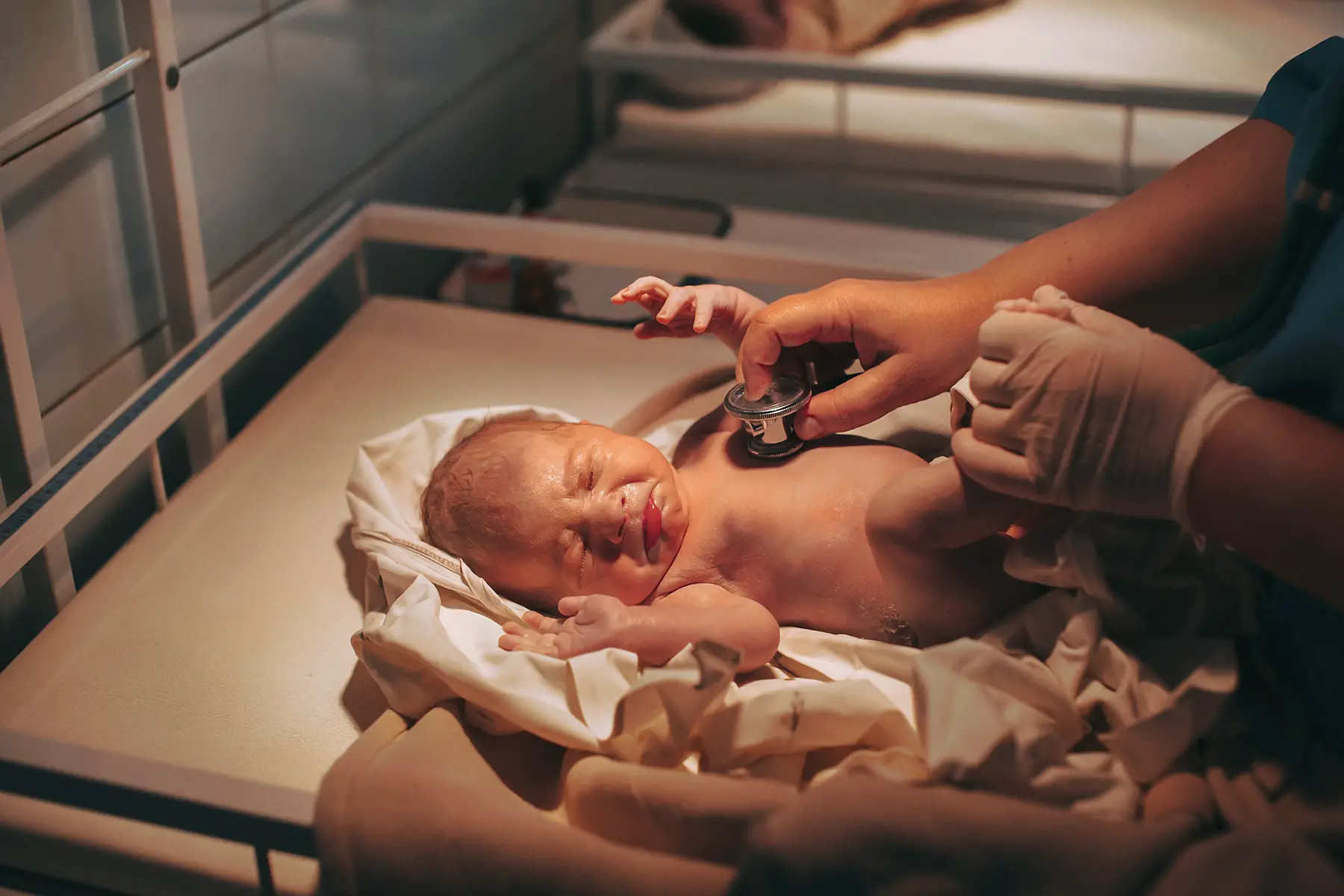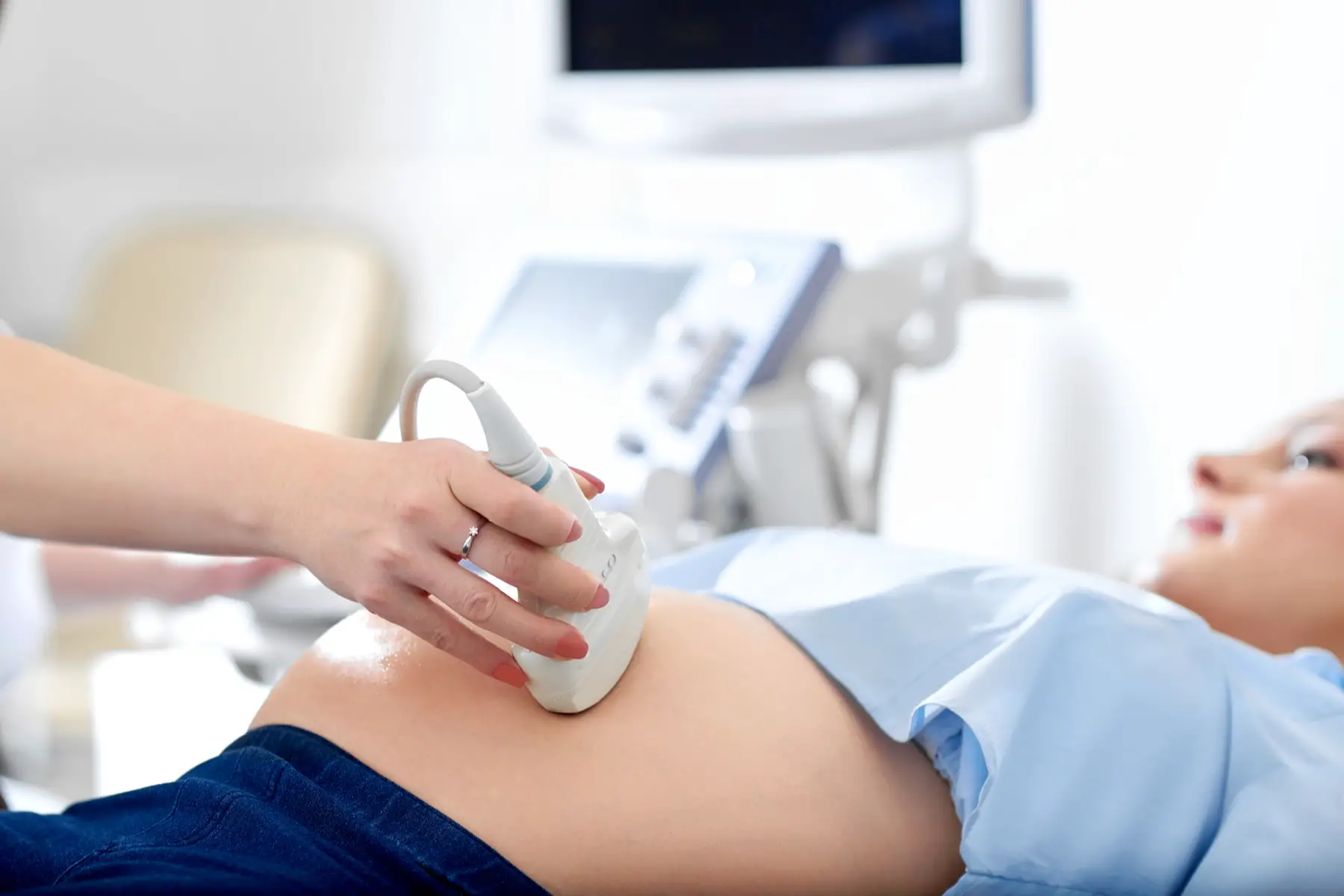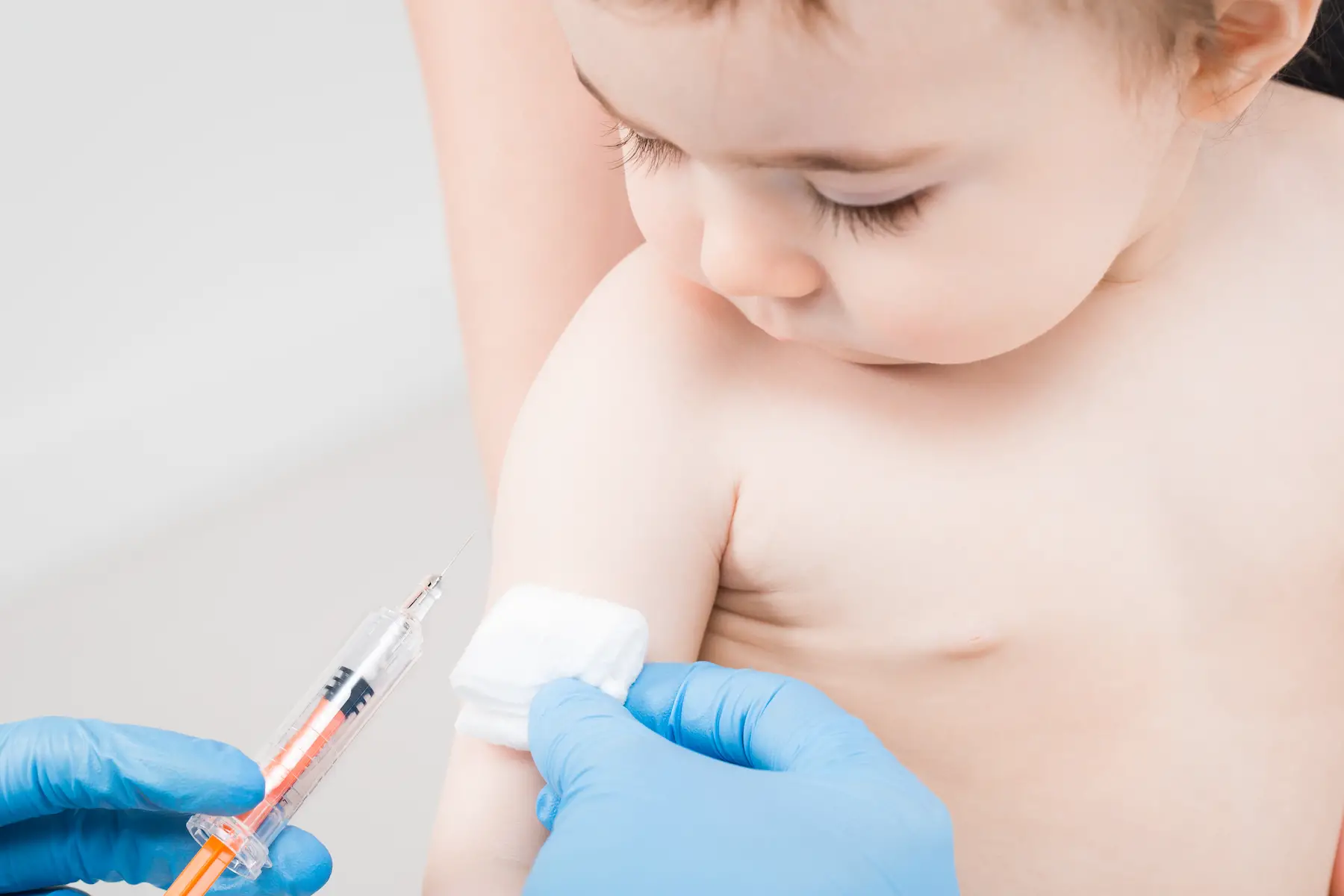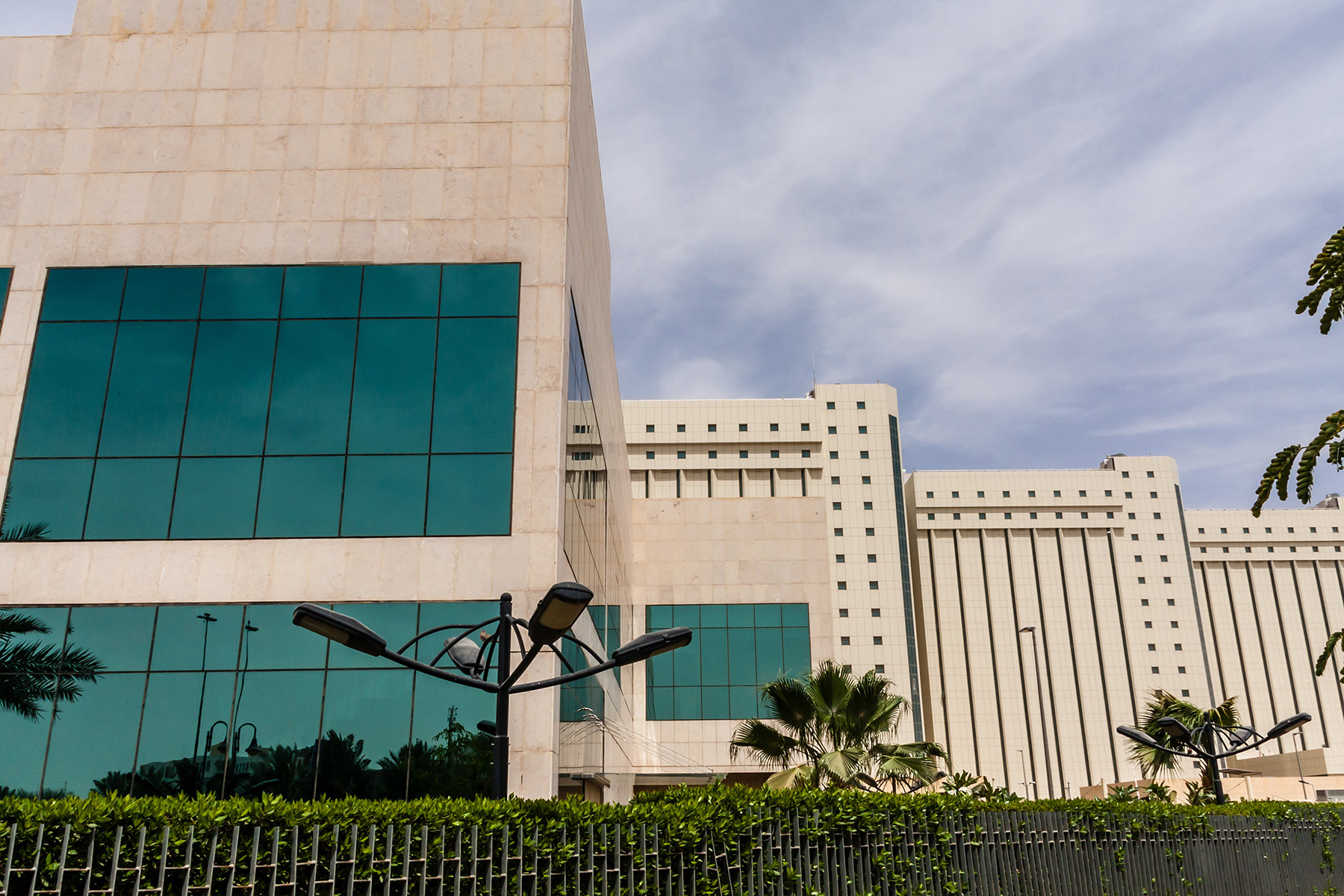So, you’re bringing new life into the world – or thinking about it. Congratulations! With the right research, preparation, and support, having a baby in Saudi Arabia shouldn’t feel very different from the experience in your home country. While giving birth in a foreign country can seem scary, luckily, it can also be a (relatively) pain-free experience.
Parents and soon-to-be parents have a few extra considerations when mulling over a big move abroad. Insurance, gynecologists, birth certificates; hospitals, birthing plans, and appointments. If you’re pregnant and considering moving to the Kingdom, this article will give you the foundational information you need to have a smooth pregnancy.
- Pregnancy and childbirth in Saudi Arabia
- Accessing maternity services in Saudi Arabia
- Insurance for maternity costs in Saudi Arabia
- Pregnancy testing in Saudi Arabia
- Pre-natal care in Saudi Arabia
- Having a baby in Saudi Arabia: childbirth
- Post-natal care in Saudi Arabia
- Registering a birth in Saudi Arabia
- Non-residents, visitors, and tourists giving birth in Saudi Arabia
- Parental leave in Saudi Arabia
APRIL International
Looking for expat-friendly health insurance in Saudi Arabia? APRIL International has a long history of providing health coverage tailored to the unique needs of the expat lifestyle, ensuring peace of mind for you and your family. Whether you're relocating to Saudi Arabia or simply staying short-term, APRIL International has the right policy for you.
Pregnancy and childbirth in Saudi Arabia
Maternity and childbirth services in the Kingdom vary, but international standards of care are widely available. You will be relieved to know that infant mortality rates are low – on par, in fact, with the United States. At the same time, with the availability of higher education opportunities as well as family planning, the fertility rate in Saudi Arabia was 2.2 children per woman in 2020. Doctors are well-trained, mostly expats, and generally speak English (though it might not be perfect).

Births are handled by OB/GYN’s who are attached to a hospital and who partner with you throughout the pregnancy, offering consistency and trust throughout the process.
Accessing maternity services in Saudi Arabia
Maternity services, including prenatal, delivery, and post-natal care are widely available in Saudi Arabia. That said, what your insurance covers could vary. Most reputable insurance companies include maternity packages in their premiums, but it never hurts to double-check. If your insurance doesn’t cover something that you deem essential, like, say, breastfeeding classes, you can always pay for those out-of-pocket or opt for a different package.
Insurance for maternity costs in Saudi Arabia
Because insurance is tied to your job contract, or that of your partner, what is included depends on things like the insurance company and the premium you chose. Most insurance companies in Saudi Arabia let you choose among various packages, so be sure to choose the one that’s suited to your needs. Keep in mind that out-of-pocket costs for the delivery alone can cost between 2,000 to 15,000 SAR, depending on the procedures required and on whether it’s a public or private hospital.
Healthcare insurance providers in Saudi Arabia include APRIL International.
Pregnancy testing in Saudi Arabia
Pregnancy tests are widely available in pharmacies and many supermarkets and can be as affordable at 15 SAR. If you’d like to double-check, or want a medical professional to confirm, you can always go to your doctor or the local hospital.

However, please be aware that having a baby in Saudi Arabia out of wedlock is illegal, so if you are just looking to confirm your pregnancy, a home test is the only safe way to go. Upon confirmation of your pregnancy, if you are not married, our advice would be to leave Saudi Arabia as soon as possible. Of course, also be sure to check if your insurance covers pregnancy exams.
Pre-natal care in Saudi Arabia
Antenatal appointments
As soon as you figure out that you’re pregnant, you should ask your expat friends for recommendations for an OB/GYN, or a hospital with a strong gynecological department. If your friends can’t offer any recommendations, find the biggest hospitals in your city and ask for the most popular OB/GYN in the department. And make sure they take your insurance. Whoever you choose will be with you for your entire pregnancy, so be sure you’re comfortable with them.
Again, because it is illegal (and intensely punished) to be unmarried and pregnant in the Kingdom, be sure that you have your marriage certificate handy for all appointments, just in case. Pregnancy and giving birth are still highly medicalized in Saudi Arabia; groups of midwives and doulas are becoming more common and vocal, but they partner with hospital births, instead of replacing them.
Scans, tests, and checks
Your doctor will tell you how regular your appointments will be, but at every appointment, they will likely take your vitals (temperature, weight, blood pressure) as well as a short ultrasound. At around 20 weeks, you’ll have the ‘major’ appointment, which will be the ultrasound where the technician makes sure that everything is normal and can let you know the gender if you’ d like. If there are any abnormalities at this point, you’d be referred to a specialist.

Antenatal classes
Antenatal classes are available in some of the larger Saudi cities and are usually coupled with doulas or other pregnancy companion services. Some of the classes offered include pregnancy nutrition, breastfeeding, pain management, among others. If you’re interested in enrolling, you should contact the providers directly; individual workshops start around 100 SAR. Check with your insurance to see if antenatal classes are included. It’s not likely but, then again, some insurance providers cover ear piercings for baby girls!
For antenatal classes in Jeddah and Riyadh, check out the following:
Having a baby in Saudi Arabia: childbirth
Delivery facilities in the Kingdom are good and downright luxurious sometimes, with VIP packages widely available. As your delivery date nears, it’s wise to have a concrete birthing plan that you’ve discussed with your doctor. Will you go to the hospital right as the contractions start or wait for them to be closer together? Will your doctor absolutely be there for the birth no matter what, or will it depend on who’s on-call on that day? Is the doctor going to induce birth, or will it be a natural birth?
These are all things that depend on both your insurance and your discussions with your doctor. If you’re planning to give birth at a public hospital, you should keep in mind that men are not allowed in the delivery room, because that’s the ladies’ area. Most private hospitals allow dads to be present, but you should double-check.
Delivery day essentials
When it’s time to go to the hospital, be sure to bring all your identification documents as well as all the normal essentials (clothes for you and baby, toiletries, diapers, etc). Be sure to ask your doctor to confirm what you need to bring with you to the hospital. Generally, you need the following:
- Identification (passport and Saudi Residence Permit) of both parents
- Health insurance card
- Your official marriage certificate
Depending on your birthing plan you can decide whether to have painkillers during the delivery, and most options – spinal blocks, epidurals, nitrous oxide, and so on – are available when you’re having a baby in Saudi Arabia. Provided that there are no complications, you should be free to go home within a couple of days.
Post-natal care in Saudi Arabia
Once you and baby are home, you’ll want to follow your doctor’s advice about how often to bring your baby in for check-ups, shots, and such. If you would like guidance with breastfeeding or any other adjustments to a new-born, be sure to ask your doctor for recommended classes or groups in your area.
Vaccinations
Unlike in many Western countries, right after your baby is born, they’ll be vaccinated against tuberculosis with a BCG shot; they’ll also receive their first Hepatitis B vaccine. Review with your doctor when exactly you should come in for your next shot but, generally, each baby receives a battery of vaccines at two and four months.

These include:
- IPV (against polio)
- DTap (against diphtheria, tetanus, and whooping cough)
- Hepatitis B
- Hib (against a type of influenza)
- PCV13 (against pneumococcal disease)
- Rota (against rotavirus)
A series of vaccines continue every several months until the child is 24 months, and then once more in primary school.
Nurseries and childcare
Children can go to nursery school between the ages of three and five. If you’re not ready to part with your little one yet, or if you’d like some help around the house, many expats choose to hire nannies. Most nannies are expats from places like the Philippines or India, though you would need to act as their sponsor. It’s not terribly expensive, but it does require that you handle all that paperwork.

Breastfeeding
Breastfeeding is highly recommended in Saudi Arabia. If you’re interested in taking classes or learning more, check to see if there are any doulas in your area, as they often offer breastfeeding support. Also, be sure to ask your doctor for any recommendations.
Registering a birth in Saudi Arabia
Because being born in Saudi Arabia does not grant you residency, your little baby needs a Saudi Residence Permit. This is only possible after their registration. The process is free and here’s what you need to know about what to do after having a baby in Saudi Arabia.
- Once you give birth, the hospital will provide you with a Birth Notification – keep this.
- Make an appointment online within the Civil Affairs department of the Ministry of the Interior.
- Download and fill out Form 88.
- Attend your appointment, making sure to bring:
- Passports of both parents (originals and photocopies)
- Original Residence Permits of parents (and photocopies)
- Original Birth Report from the hospital
- Complete Form 88
After completion and submission, the official will let you know when you can pick up your baby’s birth certificate. You should note that what you receive will be a provisional birth certificate. The official birth certificate will arrive after a year, once you show that you’ve complied with the vaccine schedule. You should also, of course, register your baby with your embassy since that will be their nationality.
Non-residents, visitors, and tourists giving birth in Saudi Arabia
It isn’t too common for pregnant tourists to find their way to Saudi Arabia. However, if a pregnant non-resident has a baby in Saudi Arabia, they would likely need to pay the hospital bill upfront, in cash, if they didn’t have insurance. This would be pricey since insurance premiums in the Kingdom are tied to your job contract. And you would not be able to access Saudi insurance.
Will your child get Saudi citizenship?
Despite being born on desert soil, your child will not receive Saudi citizenship. Saudi citizenship is passed on along the father’s – and in rare cases, the mother’s – bloodlines.
Parental leave in Saudi Arabia
New mothers are entitled to ten weeks of fully paid maternity leave, with four weeks before the birth and six weeks after. Fathers get three days of paternity leave. Mothers who give birth to special needs children may be entitled to an extra paid month after their maternity leave is over; as well as an extra unpaid month.

Once a new mother gets back to work, she can receive an additional hour-long break, above and beyond the break other employees get. You should inform your employer about your pregnancy as soon as you are comfortable; this way they can begin making arrangements.





